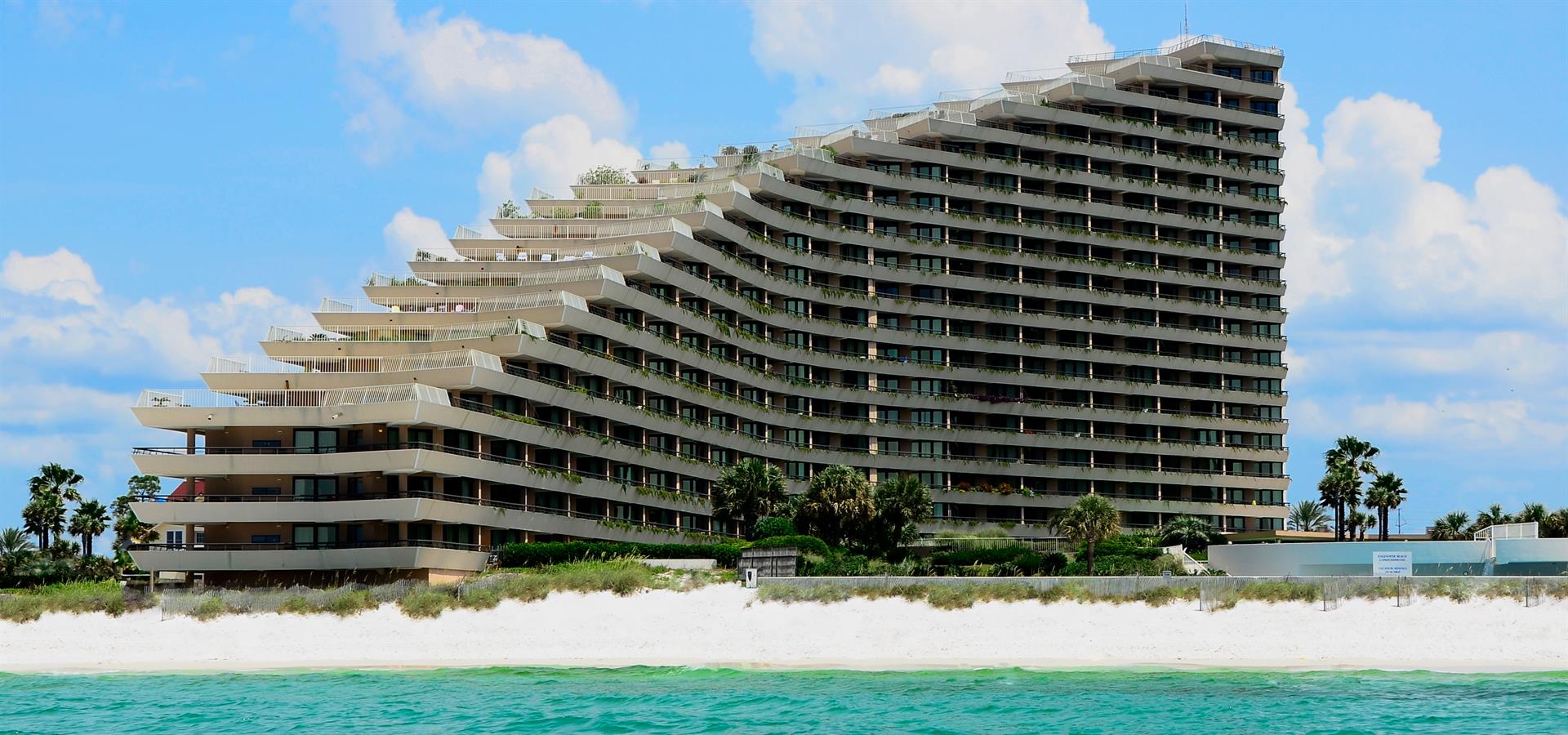Understanding condo insurance in Florida is crucial for any current or prospective condo owner in the Sunshine State. Ensuring adequate coverage can be complex, with unique weather risks and specific state laws and regulations. This article will guide you through the essentials of condo insurance, highlighting the primary requirements, types of coverage, and potential pitfalls. Whether you’re a first-time condo buyer or looking to update your existing policy, this comprehensive guide will help you confidently navigate the intricacies of condo insurance in Florida.
Overview of Florida Condo Insurance Basics
Condo insurance, often called HO6 insurance, is designed to protect the interior of a condo unit and the owner’s personal belongings. In Florida, condo insurance is critical due to the state’s susceptibility to hurricanes, flooding, and other weather-related hazards. While the condominium association typically covers the exterior building and shared spaces, individual condo owners must ensure adequate unit coverage. Understanding condo insurance basics involves knowing what areas are covered by the association’s master policy versus what areas require separate coverage.
The standard condo insurance policy typically includes coverage for personal property, liability protection, and dwelling coverage for any improvements or alterations made to the unit. Personal property coverage helps protect against losses to furniture, electronics, and other belongings. Liability protection covers injuries or damages caused to others within the unit or due to the owner’s negligence. Dwelling coverage, meanwhile, can cover improvements made to the unit’s interior, such as personalized flooring or countertops. However, carriers do not typically cover these items with a standard policy.
It’s important to understand that Florida’s weather patterns necessitate specific considerations in condo insurance policies. Hurricanes and floods are common, and standard policies might not cover damage from these events. Therefore, we often advise condo owners to consider additional coverage options. For example, everyone in Florida should have flood insurance and hurricane coverage. These policies ensure protection against the unique risks posed by Florida’s climate, helping owners avoid significant financial losses in the event of a natural disaster.
Essential Legal Requirements for Condo Owners
In Florida, state law requires condo associations to maintain a master insurance policy covering the condominium complex’s exterior and common areas. However, individual condo owners must focus on securing their own HO6 policy to cover the interior space and personal belongings. The Florida Condominium Act outlines these requirements, mandating that associations provide adequate coverage for the building’s structure and shared facilities. However, this leaves the interior of each unit and personal property in the hands of the unit owners.
Moreover, the law also states that condo owners must maintain insurance that meets the specifications laid out by their condominium association’s bylaws. These bylaws often define the minimum coverage levels for personal liability and property damage. Condo owners must review these documents closely to ensure compliance with state legislation and their association’s requirements. This process ensures that the owner and the association have sufficiently protected themselves against potential claims and liabilities.
Condo owners should also be aware of potential changes in legislation that could affect insurance requirements. For example, new mandates may require additional disclosure about the insurance policy’s scope and coverage limits. Staying abreast of these changes is crucial to maintaining compliance and adequate coverage. Understanding these legal requirements can help prevent potential disputes with the association and ensure that owners are adequately protected.
Types of Coverage Every Florida Condo Needs
One of the primary types of coverage every condo owner in Florida needs is dwelling coverage. This type of insurance covers the cost of repairs or replacements to the interior structures of your condo unit, including walls, floors, and built-in appliances. Dwelling coverage protects against any improvements or upgrades you’ve made from perils, such as fire or vandalism. With this coverage, condo owners could avoid significant out-of-pocket expenses.
Personal property coverage is another essential component of a condo insurance policy. This coverage protects your belongings, such as furniture, electronics, and clothing, against loss or damage. Sufficient personal property coverage is vital in a state like Florida, where severe weather events can occur. This policy will pay for items destroyed in a hurricane or flood. It’s crucial to assess the value of your personal belongings to determine the appropriate amount of coverage needed.
Liability coverage is equally important for condo owners. This type of insurance provides financial protection if someone is injured while visiting your unit or if you accidentally damage another person’s property. Liability coverage can help cover legal expenses and potential settlements in Florida, where litigation is relatively standard. Condo owners should consider purchasing additional liability coverage beyond the minimum required to ensure they have fully protected themselves against unexpected incidents.
Assessing Your Condominium Association’s Policy
Before purchasing a personal condo insurance policy, it’s essential to review your condominium association’s master policy thoroughly. This document will outline what areas and structures are covered under the association’s insurance, helping you identify any gaps that need to be filled by your policy. Typically, the master policy covers the exterior of the building, shared amenities, and common areas, but this can vary depending on the specifics of the policy.
Understanding the distinctions between “all-in” and “bare walls” master policies is crucial for condo owners in Florida. An “all-in” policy typically covers fixtures, installations, and additions within the condo units, whereas a “bare walls” policy only covers structural elements like walls, floors, and ceilings. Knowing which type of policy your association holds can help you determine how much dwelling coverage you need to purchase for your unit to ensure adequate protection.
Communication with your condo association’s board members or management team can provide valuable insights into the master policy’s coverage limits and any recent changes. Additionally, some associations may require proof of insurance from individual owners, so maintaining open communication can help ensure compliance with these requirements. This proactive approach will help you make informed decisions about your personal condo insurance needs and ensure that your coverage aligns with the association’s policy.
Standard Exclusions in Condo Insurance Policies
Condo insurance policies, like most insurance products, have specific exclusions that can leave certain perils uncovered. In Florida, one of the most common exclusions is flood damage. Standard condo insurance policies typically do not cover flood-related damage, meaning condo owners in flood-prone areas must purchase separate flood insurance to protect against this risk. This additional coverage is often considered essential, given Florida’s vulnerability to hurricanes and tropical storms.
Another common exclusion in condo insurance policies is earthquake damage, which is not typically a concern for Florida residents. However, condo owners should be aware of exclusions related to water damage from sources like sewer backups or sump overflows, which might require additional coverage. Understanding these exclusions can help condo owners in Florida make informed decisions about purchasing supplemental policies to fill in the gaps left by their standard coverage.
It’s also important to note that condo insurance coverage generally excludes wear and tear, neglect, and intentional damage. Carriers intend policies to cover sudden and accidental damage, so maintenance and upkeep remain the owner’s responsibility. Awareness of these exclusions can prevent surprises when filing a claim and help condo owners maintain realistic expectations regarding their insurance coverage’s scope and limitations.
Tips for Choosing the Right Florida Condo Insurance
Choosing the right condo insurance in Florida involves carefully assessing your needs and comparing available options. Start by evaluating the replacement cost of your condo’s interior, including any upgrades or improvements, to determine the appropriate level of dwelling coverage. Accurate valuation is crucial to avoid being underinsured, especially in a state prone to natural disasters.
Next, consider the value of your personal belongings and make an inventory to determine the amount of personal property coverage you require. This inventory should include detailed information about electronics, furniture, clothing, and their respective values. This list can help you determine the appropriate coverage limits and ensure adequate protection against theft or damage.
Finally, when selecting a policy, compare quotes from multiple insurance providers to find the best coverage at a competitive price. Look for insurers with strong financial ratings and positive customer service reviews to ensure reliability when handling claims. Additionally, consider bundling policies or increasing deductibles to reduce premiums, but be cautious to maintain essential coverage. Consulting with a knowledgeable insurance agent can provide further guidance tailored to your specific needs and help you make an informed decision.
Conclusion
In conclusion, understanding condo insurance requirements in Florida is vital for ensuring comprehensive protection of your investment. You can make informed decisions about your insurance needs by familiarizing yourself with the basics, legal requirements, and necessary coverage types. Assessing your condominium association’s policy and being aware of standard exclusions will help you identify and fill any coverage gaps. With the correct information and careful planning, you can choose a condo insurance policy that provides peace of mind in the face of Florida’s unique challenges.



Comments are closed.